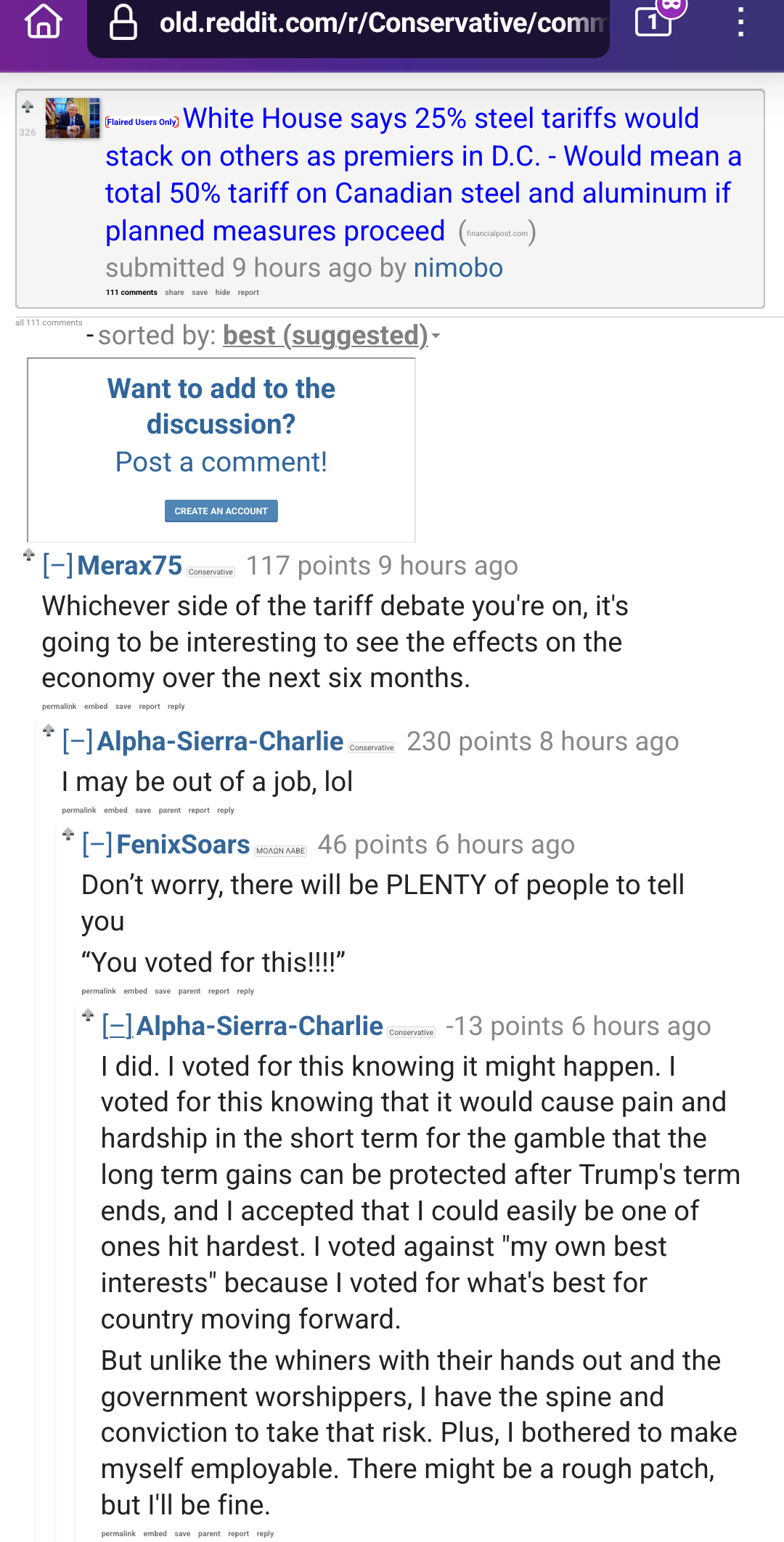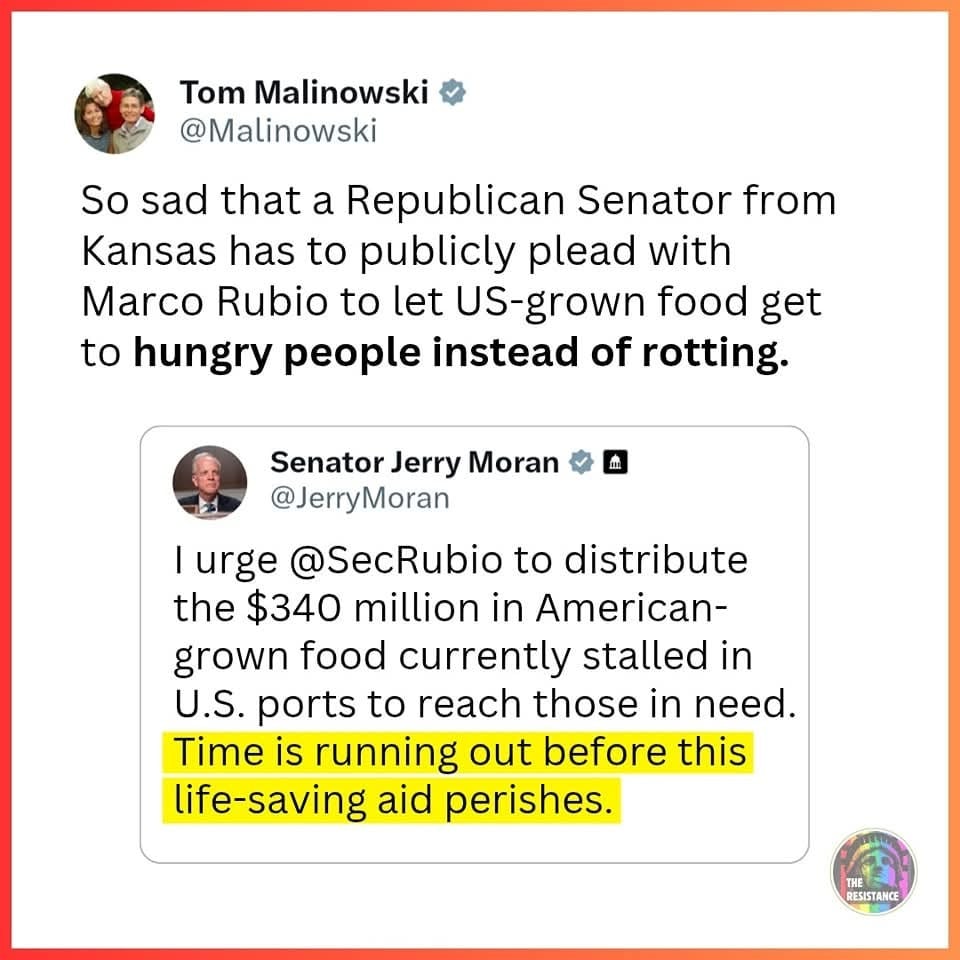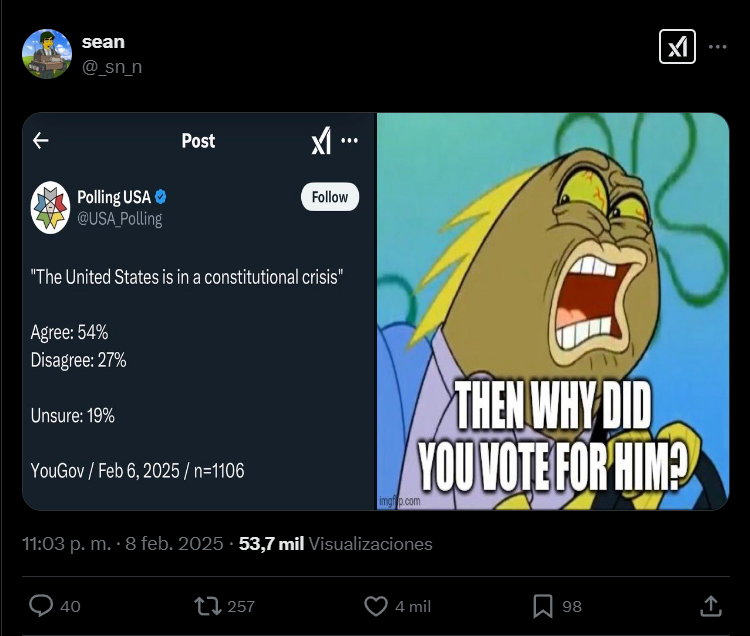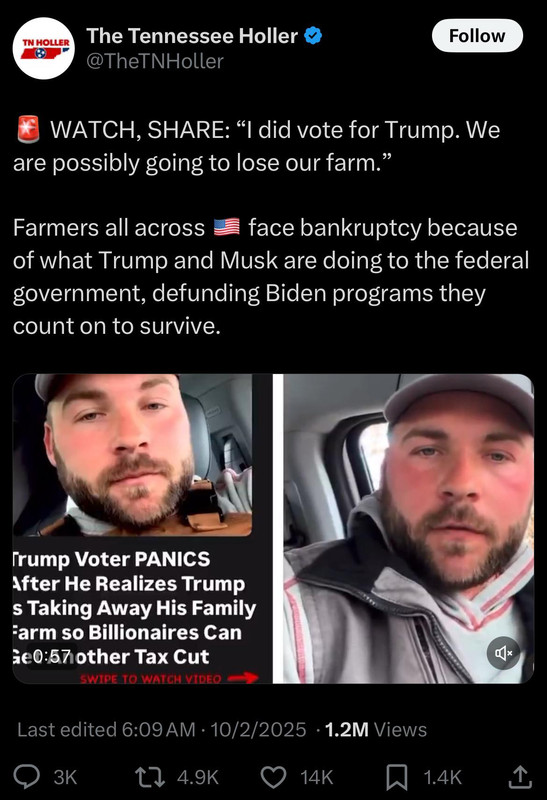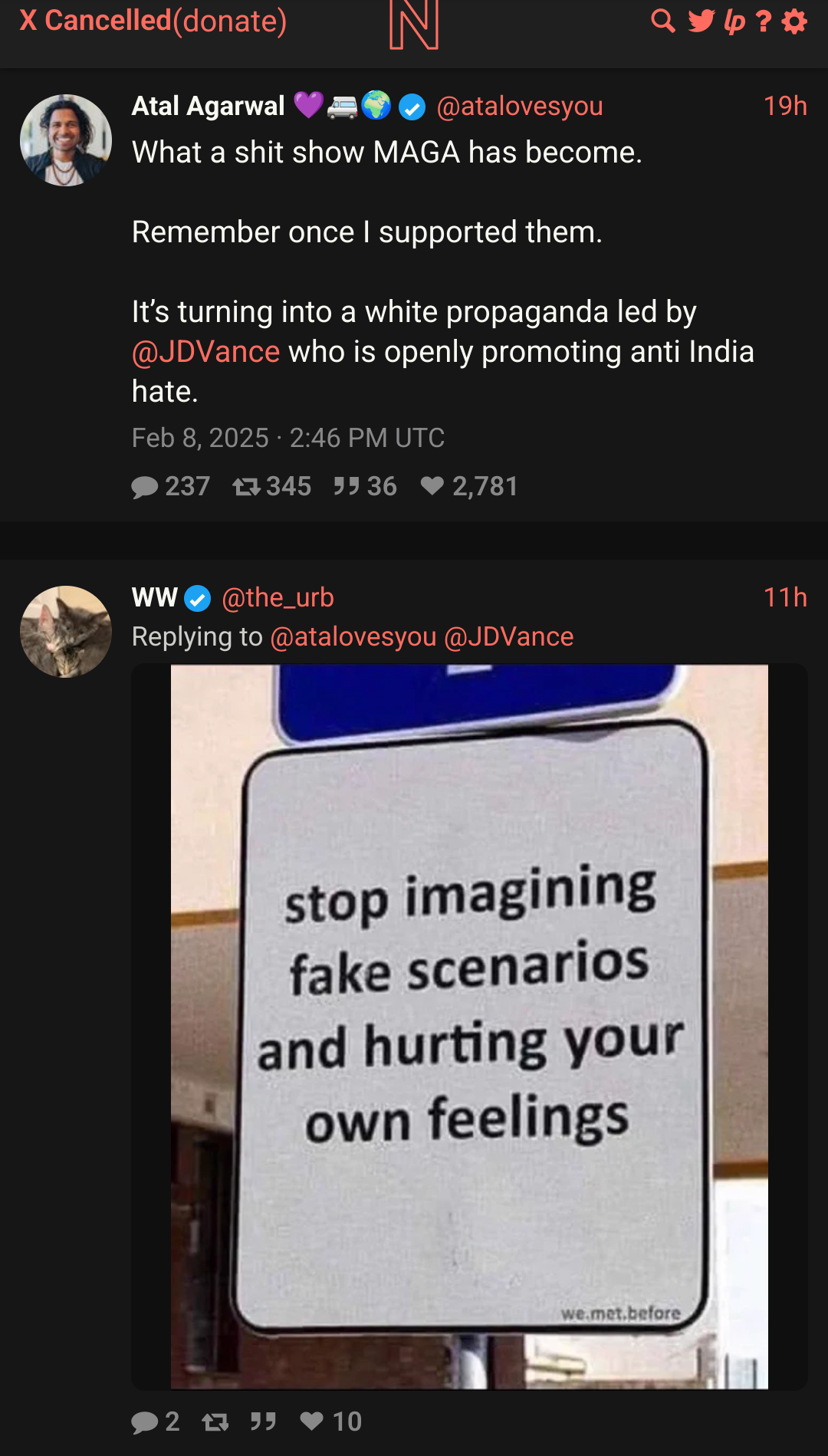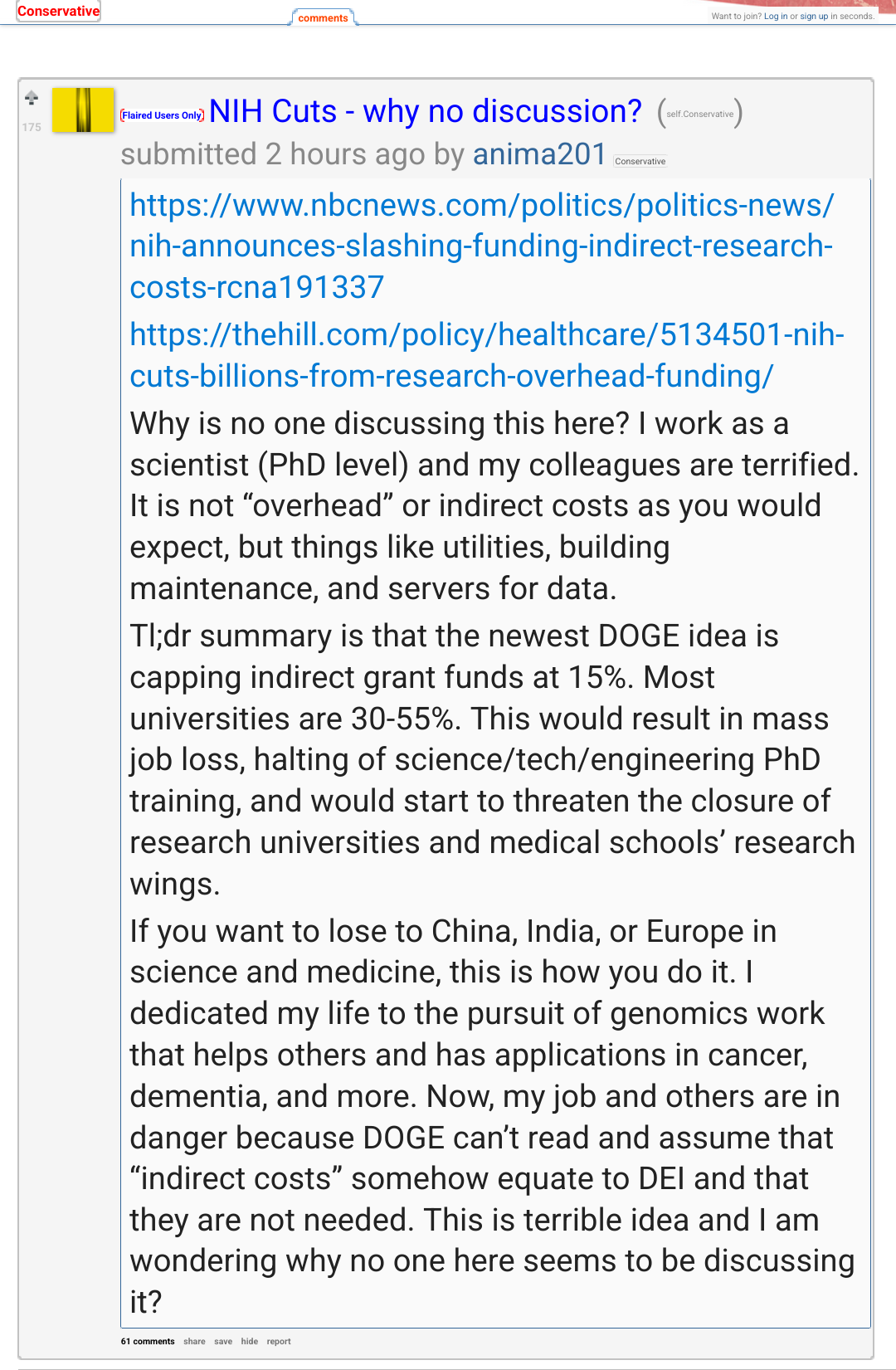Tiktok video: https://www.tiktok.com/@cattlemenfamilyfarms/video/7467698017559170350
Bsky post: https://bsky.app/profile/thetnholler.bsky.social/post/3lhrdl5nt222s
Articles:
spoiler
ft.com
US farmers ‘prepare for the worst’ in new Trump trade war
Guy Chazan
7–9 minutes
Aaron Lehman’s soyabean farm in the heartland of Iowa feels like an oasis of calm in the turbulence and tumult of President Donald Trump’s second term. Yet all that could change in a matter of weeks.
Lehman is bracing himself for the impact of a potential trade war hatched in Washington that he says could lay low the US corn belt and irreparably harm America’s standing with its neighbours.
“Farmers understand that trading relationships go up on a stairway, where you work hard to build them up, but go down on an elevator — very, very fast,” Lehman said in the living room of his farmhouse about 20 miles north of Iowa’s capital Des Moines.
“The long-term effect is that countries around the world will no longer see us as a reliable partner.”
It has been a turbulent week in US trade policy. Trump announced last weekend that he would impose 25 per cent tariffs on Mexico and Canada, saying they were not doing enough to stem the flow of migrants and the illicit drug fentanyl into the US. Then after last-minute talks with the two countries’ leaders, he agreed to give them both a 30-day reprieve.
The same was not the case for China. The 10 per cent levy he imposed on all Chinese imports still stands. And many in Iowa believe it is only a matter of time before the tariffs on America’s northern and southern neighbours are reinstated.
The opening salvo of a new trade war has sent a chill through the Midwest. Canada, Mexico and China together account for half of all American agricultural exports. Just last year, the US sold more than $30bn in farm products to Mexico, $29bn to Canada and $26bn to China, according to American Farm Bureau statistics.
Suddenly, farmers were facing the spectre of retaliatory tariffs and the prospect of a full-scale conflict that some fear could decimate America’s rural heartland.
Two large grain silos and an old shed sit on a dry, grassy area with expansive flat fields in the background under a partly cloudy sky
Farmers fear a full-scale trade war could decimate America’s rural heartland © Amir Prellberg/FT
Farmers in an area of the country that has become a bedrock of support for Trump now worry that the president’s tariffs, though suspended at the last minute, have permanently damaged the image of the US in the eyes of its most important trading partners.
“We’ve gone from being a seller of choice to a seller of last resort,” said Mark Mueller, a farmer from near Waterloo in north-east Iowa.
Few US states better embody the agricultural wealth of the Midwest than Iowa. It is a land of vast corn fields stretching as far as the eye can see, the landscape broken by the occasional grain silo, hay bale or low-slung barn. Hogs outnumber people more than seven to one.
It is also Trump country. Although Iowa voted for Democratic presidents Bill Clinton and Barack Obama, it backed Trump in 2016, 2020 and 2024 in ever greater numbers.
More than a fifth of Iowa’s economy — or $53.1bn — is tied to agriculture, from crop and livestock production to food processing and manufacturing. It is the country’s largest producer of corn, hogs, eggs and ethanol and a top-three grower of soyabeans. That makes it particularly vulnerable to any downturn in agricultural exports.
“Free trade is the backbone of the economy in the Midwest,” said Ernie Goss, an economist at Creighton University in Omaha, Nebraska. “What we have here is some of the most productive agriculture on the face of the Earth, and the domestic market is not even close to being big enough to absorb all the commodities produced here. You have to have international markets.”
Aaron Lehman is seated near a window inside a room, wearing glasses and a checkered shirt
‘The long-term effect is that countries around the world will no longer see us as a reliable partner,’ said Aaron Lehman © Amir Prellberg/FT
The latest volley of tariff threats has evoked painful memories of the trade war unleashed by Trump in his first term. Among the most striking moves was Trump imposing duties on $300bn of Chinese goods. Beijing responded in 2018 by slapping 25 per cent tariffs on imports of US soyabeans, beef, pork, wheat, corn and sorghum.
The skirmish ended with the countries signing a trade deal in 2020 under which Beijing pledged to increase its purchases of US goods and services. But since then, it has been buying more grain from countries such as Argentina and Brazil, which overtook the US as China’s top supplier of corn in 2023.
In the last trade war, “a lot of our Asian buyers started developing relationships with soyabean producers in South America, and they’ve taken more and more of our market”, said Lehman, who is also president of the Iowa Farmers Union. “And we haven’t got it back.”
Not all of Iowa’s farmers oppose the way Trump has used the threat of tariffs to achieve a key policy objective — stemming illegal immigration.
“It was a strategy he needed to use to . . . get those countries to the negotiating table,” said Steve Kuiper, a fourth-generation Iowa farmer who grows corn and soyabeans in Marion County, south-east of Des Moines. After all, “a president has just four years to accomplish all he’s promised to do, so he’s got to get things going immediately to gain traction”.
Still, he is pessimistic that Mexico and Canada will be able to deliver on their pledges to Trump to strengthen border security in time. “It takes forever for these things to happen, and they’ve only got 30 days,” he said.
A view through a window shows a barren soybean field
The latest volley of tariff threats has evoked painful memories of the trade war unleashed by Donald Trump in his first term © Amir Prellberg/FT
The prospect of another round of trade tensions comes with American farmers already in a tight spot, hit by a fall in crop prices and higher costs. Net farm income, a broad measure of profits, was $181.9bn in 2022 but is projected to have been $140.7bn in 2024, according to data from the US Department of Agriculture — a 23 per cent slump.
“This [trade war] isn’t coming at a good time,” said Rick Juchems, a farmer from near Plainfield in north-east Iowa. “Commodity prices are low and the price of inputs like seed and fertiliser is going up.” Sources from the Iowa Corn Growers Association said many farmers had been producing at a $100 per acre loss.
Investments in new equipment are down, reflecting the wider downturn, said Juchems. “I’ve got friends who’ve lost their jobs selling agricultural machinery because of reduced demand. The lots are full of unsold tractors.”
Makers of farm equipment such as Deere, Kinze Manufacturing and Bridgestone/Firestone have shed hundreds of jobs in Iowa since last year.
Yet the prospects for farm finances could get even gloomier if Trump makes good on his threat of import levies. Fertiliser, for example, could become much more expensive, since more than 80 per cent of the US’s supply of potash — a key ingredient — comes from Canada.
But perhaps the most destructive effect of the tariff debate is the uncertainty it has triggered, just ahead of the crucial spring planting season.
“We’ll get by as long as we know what’s coming,” said Juchems. “But things are changing all the time. I’m sure the whole world is laughing at us.”
Lehman said farmers were trying to stay optimistic. “They tell me they’re hopeful cooler heads will prevail and this dispute will result in good trade agreements,” said Lehman. “But they’re also preparing for the worst.”


